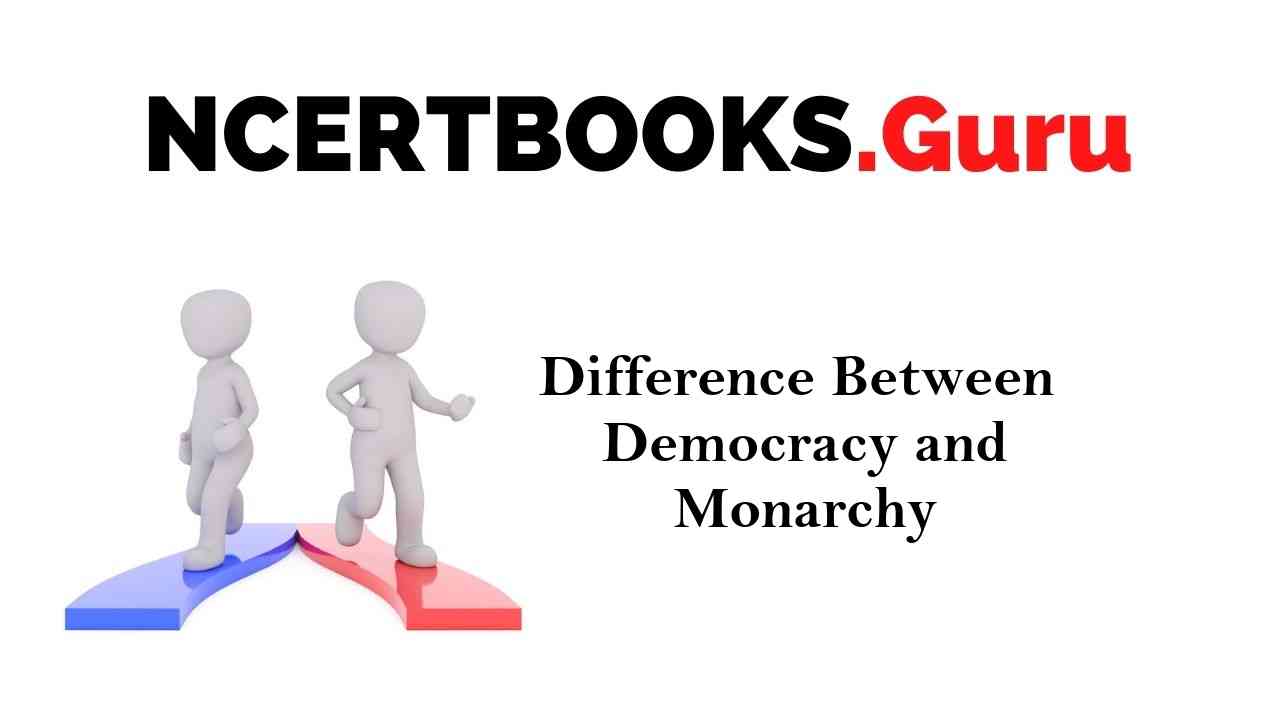Difference Between Democracy and Monarchy: Several governmental structures throughout the world are based on certain elements such as location, religious beliefs, and political affiliations that are governed differently. Monarchy and Democracy are common forms of governance that are often at opposite ends as they contradict each other’s rules and regulations.
You can also find differences between articles on various topics that you need to know. Just tap on the quick link available and get to know the basic differences between them.
What is the Difference Between Democracy and Monarchy
Democracy is defined as the system in which people can change their representatives. The word ‘democracy’ was termed by the Ancient Greeks, who established a direct form of Government in Athens. Monarchy is the oldest form of the Government, where an individual who is commonly known as the monarch, is the head of state for life or until abdication. In a Monarchy Government, an individual ruler achieves his or her position through heredity and is passed through a dynasty.
The topic- Difference Between Democracy and Monarchy is important from understanding the clear distinctions between Democracy versus Monarchy. To better comprehend the topic, let us understand the topic in a detailed manner.
Difference Between Democracy and Monarchy
| Democracy | Monarchy |
| Democracy is referred to the state of governance where the country is ruled by a Government elected by its citizens through electoral systems. | Monarchy is referred to as the state of governance when a country is governed by kings and queens when the right to rule a country is passed through a dynasty and is not conducted through elections. |
| Democracy is generally of two types: Direct Democracy and Representative form of Democracy. | Presently, there are different Monarchies types, such as Subnational Monarchy, Absolute Monarchy, Commonwealth Realms, Constitutional Monarchy, and Semi-Constitutional Monarchy. |
| In a democratic system, people are given the freedom to offer their feedback on policies. They can bring about the necessary changes in the policies and are given the right to condemn the Government. | In a Monarchy form of Government, people do not have the right to condemn the Monarchy or any rules set by the Dynasty. |
| In a Democratic System, the elected representatives make the regulations, laws, and rules on behalf of the general public for the citizens’ welfare. | In a Monarchy System of governance, the laws are framed by the Kings and Queens, and the general public has no say in the formulation of these rules and regulations. |
| In a democratic system, the people are considered as equals. | In a Monarchy form of governance, people are not considered as equals. |
| In a democratic form of governance, the elected representatives are solely held accountable by the country’s people. Therefore, the electoral representations are held, and the candidates lose their right to rule if they do not meet the people’s expectations. | In a Monarchy, the Kings and Queens have no accountability, and the public has no power to remove the Kings and Queens from their power if they are dissatisfied with their administration. |
| People do not face oppression from democratically elected Government representatives. | People may face oppression if the ruler is a tyrant. |
| Democracy first originated in Greece, and the Athenian Democracy is often described as the first well-known Democracy in the world. | Monarchy was prevalent during Ancient and Medieval times and till date, continues in a few countries. |
| A few examples of Democracy rule are India, France, USA, and more. | A few examples of the Monarchy rule are Middle East countries like Saudi Arabia and the United Arab Emirate (UAE). |
